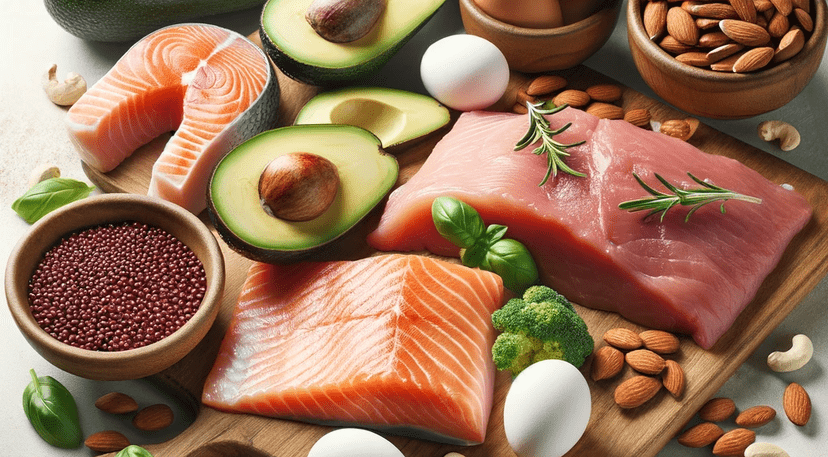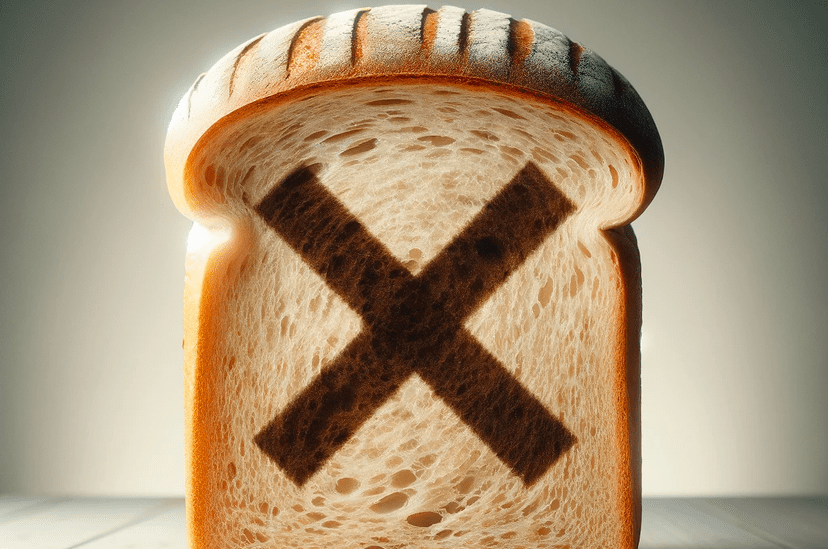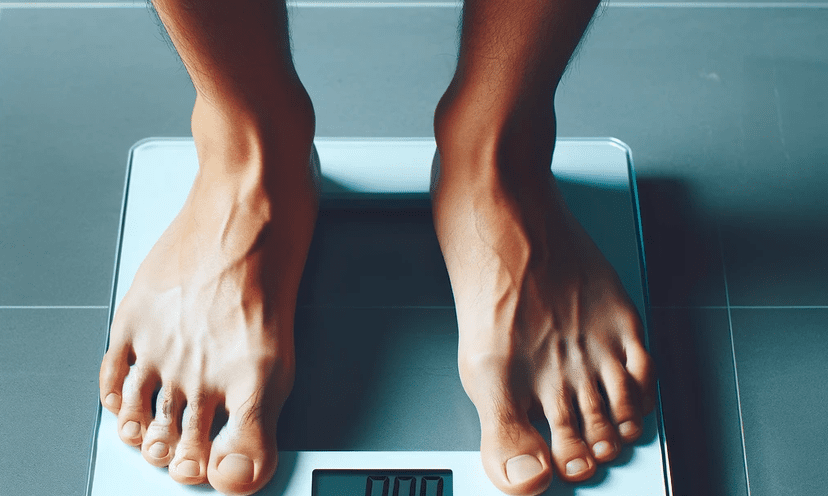Why are my clothes looser but not losing weight?

Understanding Body Composition Changes
In your fitness journey, you might sometimes notice peculiar changes - your clothes are getting looser, yet the weight on the scale just won't budge, or even sometimes, it shows a gain. This odd phenomenon is primarily a result of changes in your body composition - the ratio of fat to lean muscle in your body. Weight is an unrefined measure of health because it cannot differentiate between the weight of muscle and fat. And this is where understanding the concept of body composition becomes necessary.
Muscle vs. Fat: Density Matters
One of the major players in this body transformation game is the difference in density between muscle and fat. Consider this, a pound of muscle occupies less space than a pound of fat. This is because muscle has a greater density than fat and thus, muscle weighs more by volume. Therefore, as you work out and build muscles, you might not notice a drop in your weight. However, because muscle is denser and takes up less space, you become leaner and your clothes fit more easily, even though the scale might not move much.
The whole scenario can be compared with packing a suitcase. If you fill your suitcase with cotton balls (comparable to fat), it will look full but be relatively light. But if you fill the same suitcase with rocks (comparable to muscle), it will weigh a lot more even though it looks just as full.
The Role of Water Retention
Another important factor to be considered is water retention. It's a lesser-known fact that our bodies can retain excess water, making us feel bloated and increasing our body weight. This can occur due to various reasons including a high sodium diet, certain medications, hydration levels, and hormonal changes.
When you start a new diet plan or a workout routine, your body may initially respond by retaining more water. This increased water storage can counteract any fat loss and keep your weight steady, despite your clothes feeling looser. Over time, your body adapts to the new routine, the water retention reduces, and you may begin to see a drop in weight.
Non-Scale Victories
Weight loss journeys can be more complicated than simply watching numbers on the scale decline. It is easy to get disheartened but it's important to celebrate the non-scale victories. These include improved strength and endurance, better fitting clothes, enhanced mood, healthier skin, and more.
By focusing on these 'non-scale victories' you can maintain your motivation even when the scale doesn't move. Remember, it is a journey of becoming the healthiest version of yourself, and it's not just about losing weight. Real progress can't always be quantified. So, watching out for these non-scale signs of improvement can indeed provide the encouragement to continue with your healthful habits without getting disillusioned by the seemingly stubborn weighing scale.
To conclude, when you're on your fitness journey, it's essential to understand that ultimate health cannot be defined simply by the digits on the scale. Body composition matters. Changes in muscle mass and water retention can affect scale weight greatly while actual progress can be witnessed through the way your clothes fit and how you feel overall. Therefore, it's vital to not judge progress solely by weight. It's a number, not a value statement!
Factors Affecting Weight Loss and Body Shape
In the journey of weight loss and body shaping, several underlying factors can influence both these aspects variably. Comprehending these factors belonging to diverse categories such as hormonal changes, types of diet, and exercise routines can help in addressing your query: "Why are my clothes looser but I am not losing weight?"
Dietary Influences on Body Composition
Our diet plays a significant role in modifying our body structure. Consumption of different nutritional components can lead to varying effects on body weight and shape. For example, consuming high protein diets can promote muscle growth and fat loss, even in the absence of significant weight loss. This can happen due to increased muscle density compared to fat tissues. It means, you might be losing inches as your body becomes leaner, causing looser clothes, despite the scales not dropping numbers.
On the other hand, a diet high in carbohydrates and empty calories can contribute to weight gain, mainly through stored fats, while not significantly altering the physical dimensions. Following a balanced and nutritious diet that matches your body requirement can positively influence weight and shape, without sudden increments or drops.
Exercise and Its Impact on Body Shape
The form of exercise you undertake can significantly influence how your body looks and loses weight. Resistance and strength training exercises build muscle mass and improve muscle tone, making the body appear leaner and more tightly packed. As mentioned earlier, muscle has a higher density than fat, which signifies a slight weight gain or stability but a decline in dimensions.
On the contrast, cardio-focused activities like running or aerobics burn more calories in general, leading to a broader weight loss. However, they might not greatly tighten or alter body shape, especially in the absence of accompanying targeted exercises. Therefore, including a blend of cardio, resistance, and strength training activities in your routine caters to both weight loss and shape enhancement.
Metabolism and Weight Management
In addition to diet and exercise, the baseline metabolic rate also affects weight loss and body shape. Metabolism is the rate at which your body burns calories for everyday activities. If your metabolic rate is high, you burn calories even though you're not involved in strenuous tasks. This can lead to weight loss, given a consistent caloric intake.
Nonetheless, an increasing metabolic rate might cause a relative decrease in fat levels and increase in muscle mass. This can result in you not seeing a massive change in your weight but observing changes in your physique, such as looser clothing.
In conclusion, while the numeric value on the scale could be stable or even slightly increasing, you should also consider, and might often prefer, the progressive loss of inches and a more toned body over a strictly numerical weight loss. Fitness is a multifaceted picture and should, therefore, incorporate a comprehensive understanding of all its influencing factors.
Interpreting Changes and Adjusting Goals
When embarking on a fitness and health journey, it's common to wonder, "Why are my clothes looser but I'm not losing weight?" The answer lies in understanding the different factors that contribute towards your overall health and how they affect your body and weight.
Setting Realistic Fitness Goals
Recognising the unique journey of your body is a crucial factor in setting realistic fitness goals. It's important to remember that the number on the scale isn't the best comprehensive indicator of your health or fitness.
A significant aspect of health is body composition, which refers to the proportion of fat, muscle, water and bones in your body. Even without a significant loss in weight, the practice of consistent exercise and a balanced diet might lead to a decrease in fat mass and an increase in muscle mass.
This could lead to clothes fitting looser without substantial changes in weight. The weight of muscle is greater than fat due to its higher density, which can explain why your weight might stay the same or even sometimes increase as you get fit.
Appreciating Your Body's Journey
Fitness isn't a one-size-fits-all field. Each person's body responds to exercise and diet in different ways. The most important part of your fitness journey should be your individual progress and wellbeing, not comparisons with others or an arbitrary number on a scale.
By focusing too much on the scale, we often tend to overlook the various changes happening to our bodies, such as improved endurance, strength and flexibility or changes in body shape. All these changes might not reflect in your weight but can significantly contribute towards how your clothes fit and your overall sense of wellbeing.
Assessing Overall Health and Progress
Your progress, in the long run, isn't solely defined by your weight. In fact, the overall health progress might be gauged through multiple factors, including:
- Improved cardiovascular functioning
- Lower levels of stress
- Better mobility and flexibility
- Improved balance and strength
- Increase in overall stamina
Remember, your wellness journey is about making sustainable changes to improve your overall health and fitness. Adjust your goals if needed, make sure they are challenging yet achievable, and above all, focus on how you feel, both physically and emotionally. This comprehensive focus will help ensure long-term success on your health journey.
Appreciating the body’s internal transformation without solely focusing on weight loss will truly put the celebration in the journey.
In Summary
The journey towards improved health and fitness is much more complex than a simple reduction in weight. This blog post aimed to throw some light on the importance of understanding your body composition as a true measure of fitness progress. We explored the differences in density between fat and muscle and how they affect our body shape and weight differently. Also, we discussed the significant role our diets and exercise routines play in these physical shifts, plus the influence of water retention and metabolism on our bodies.
Recognising these factors helps us acknowledge what's called non-scale victories - improvements in strength, endurance, body shape, mood, and overall health which might not reflect on the scale. The latter part of this engagement encouraged embracing your own unique fitness journey, rather than making comparisons or sticking solely to scale numbers. In essence, the journey towards becoming healthier is comprehensive, unparalleled, and should focus more on sustainable changes than just losing weight.
To implement these insights in your own fitness journey, here is a suggested plan of action:
-
Develop a Clear Understanding of Body Composition: Acknowledge that a healthier physique isn't solely about having lesser weight but a proper balance of muscle and fat.
-
Focus on Dietary Quality: Maintain a balanced diet that fosters muscle growth and fat loss and supports essential bodily functions.
-
Employ a Mix of Exercises: Include a combination of cardio, resistance, and strength training in your exercise routine to cater to both muscle build-up and fat loss.
-
Stay Hydrated & Regulate Sodium Intake: To counteract possible water retention and bloating, always keep yourself hydrated and try to regulate your sodium intake.
-
Monitor Non-Scale Victories: Keep track of the improvements beyond the scale, like better fitting clothes, improved strength, or an enhanced mood.
-
Appreciate your Own Journey: Every body is unique, and its response to dietary changes and routines varies. So, embrace your body's journey and avoid unnecessary comparisons.
-
Adjust Goals as Needed: Constantly assess your progress and adjust your goals as necessary, ensuring that they are achievable yet challenging.
Remember, the journey towards better health is not just about the journey, but also about celebrating the progress and victories along the way - whether on the scale or off it.
![Does a 400 and 600 Calorie Diet Plan Help Weight Loss?[ANSWERED]](https://img.imageboss.me/onestep/width/828/format:auto,quality:80/assets/site/blog/does-a-400-and-600-calorie-diet-plan-help-weight-loss.png)
![How Many Calories Does 10,000 Steps Burn? [ANSWERED]](https://img.imageboss.me/onestep/width/828/format:auto,quality:80/assets/site/blog/how-many-calories-does-10000-steps-burn.png)









